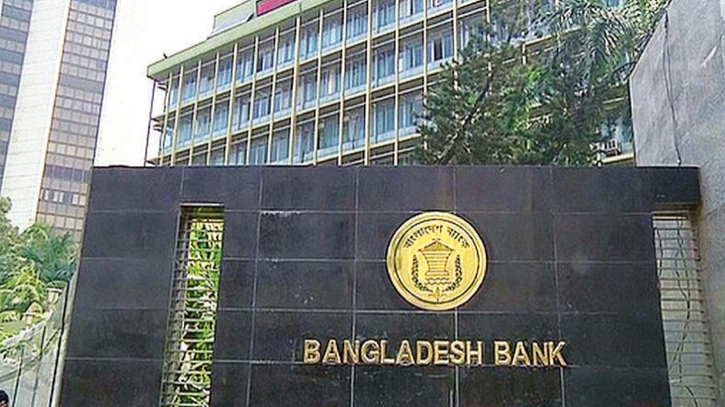
Photo : Collected
The regulatory body for the banking sector in Bangladesh is Bangladesh Bank, and there have been numerous complaints about its activities. According to economists and related parties, the central bank is responsible for various failures, such as its inability to prevent the decline of the country's economy and its ineffective role in controlling inflation.
The apex regulatory body for the country's monetary and financial system itself acknowledges these issues to a large extent. However, a high-ranking official at the policymaking level of the central bank recently claimed to have received a green signal from the head of government. This official said that Bangladesh Bank is taking a hard line to establish itself as a regulatory body.
In recent times, the country's defaulted loans have surged to over Tk 1.55 lakh crore, with a default loan rate of around 11 percent, known as the "cancer" of the banking sector. Bangladesh Bank aims to reduce this rate to 8 percent by June 2026 and has outlined 11 programmes for implementation.
The head of government has instructed Bangladesh Bank to become the primary regulatory body in practice, not just on paper. The country's economy has deteriorated over the last 15 years, and a top official of Bangladesh Bank, speaking on the condition of anonymity, revealed that the prime minister is committed to taking necessary actions to consolidate the economy.
The official said, “Bangladesh Bank faced challenges in the past due to pressures from powerful entities, compromising on many fronts. However, with the current governor in office, there is a clear message that Bangladesh Bank will not operate as it did before.”
Regarding the recent national elections, the official mentioned that the ruling Awami League's manifesto promised economic sector reforms, and the prime minister ordered necessary actions for the economy's well-being. In the first phase, export incentives were withdrawn from 43 products despite pressure, demonstrating the commitment to economic reforms.
Addressing past challenges, the official acknowledged, "While being the regulatory body, we faced influences from influential figures, and compromises were made. However, we are now committed to moving away from that situation.”
Despite claims that the recommendations originated from the IMF, a deputy governor of Bangladesh Bank denies this and emphasises that their roadmap is determined independently. When asked about Bangladesh Bank's upcoming actions, the organisation outlined its primary task as economic consolidation, focusing on retrieving funds from the banking sector, addressing the total loan defaults of Tk 2.30 lakh crores, and working with various bank managers to recover debts of Tk 2 lakh crores.
Bangladesh Bank is taking several initiatives to reduce defaulted loans. Among these, all the facilities of the defaulters will be stopped. Bangladesh Bank will work together with every government institution. In the first step, all the defaulting customers will be forced to repay the loan by the concerned bank. Defaulters will not get government benefits, rewards, or privileges. They will not be invited to any government events, nor will they receive nominations or benefits as CIP or VIP.
They will not be able to obtain new loans from any bank or financial institution, buy houses or cars, or access gas, electricity, or water connections for their homes or factories. Special passports will not be issued, and those previously obtained will be confiscated. Their children will not be able to get admission to schools, colleges, or universities. No matter how influential the defaulters are, they will not receive these benefits if they do not repay the loan. Additionally, there will be no opportunity to participate in elections by paying an installment before the election, said a top official of Bangladesh Bank.
He also said, “The defaulters who are directors of the bank will be removed. Furthermore, I am going to make a decision to dissolve the board of directors of several other banks. A decision will be made on these issues very soon.”
In this regard, the former official of the IMF and the executive director of the private research organisation Policy Research Institute (PRI), Ahsan H Mansoor, told The Daily Messenger, “This is undoubtedly a smart move. We all wanted it. It is desirable that Bangladesh Bank will act according to its own laws. However, if you want to do it, you can't do it anymore. Countries like ours have many limitations. It is really difficult to avoid these things. But if you can work, the country will move forward much faster.”
He also said, “Now the country has come to a situation from which there is no way to go back. To move forward, the economy must be rescued from defaulters and bank defaulters. Business should be transferred from bad businessmen to good people. Doing these things is challenging, but not impossible. Our country has shown it during the caretaker government. The Prime Minister has her promises. I believe that it will work accordingly.”
Executive Director of South Asian Network on Economic Model (SANEM), Salim Raihan, told The Daily Messenger, “Bangladesh Bank is facing the main challenge. The central bank of the country is the protector of the country's economy. If the economy collapses, the responsibility lies with the central bank. So, Bangladesh Bank has more challenges than the government. The central bank knows well what needs to be done to develop the economy. If the initiatives that are heard about can be implemented, I believe that many good things will happen.”
However, BB cannot do all the work alone, the economist Majedul Haque said. He told The Daily Messenger, “The defaulters file a case in court whenever something happens against them. In this case, the debt collection is stopped, and many people get through. To get out of this, the Department of Justice, Ministry of Finance, and Bangladesh Bank have to work together. The initiative taken by Bangladesh Bank certainly deserves praise, but it will not be only on paper. Enforcement should be done in this regard.”
Messenger/Fameema








